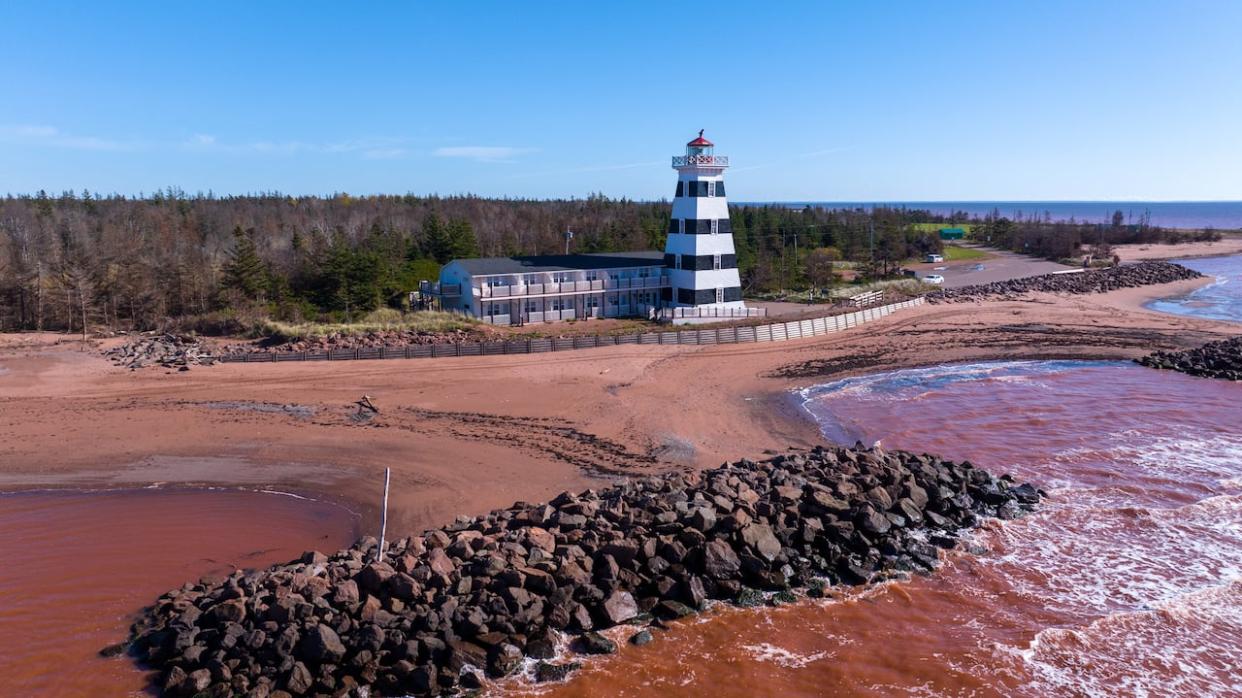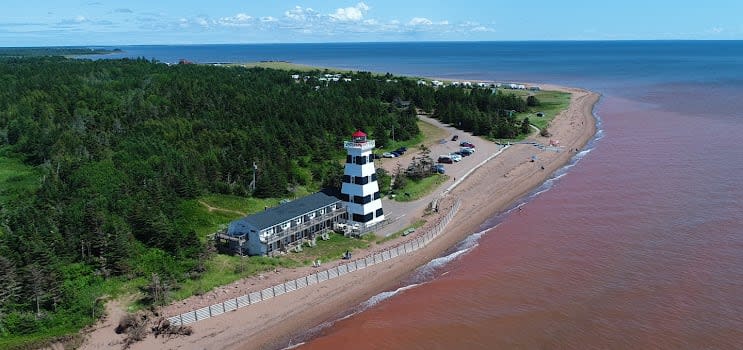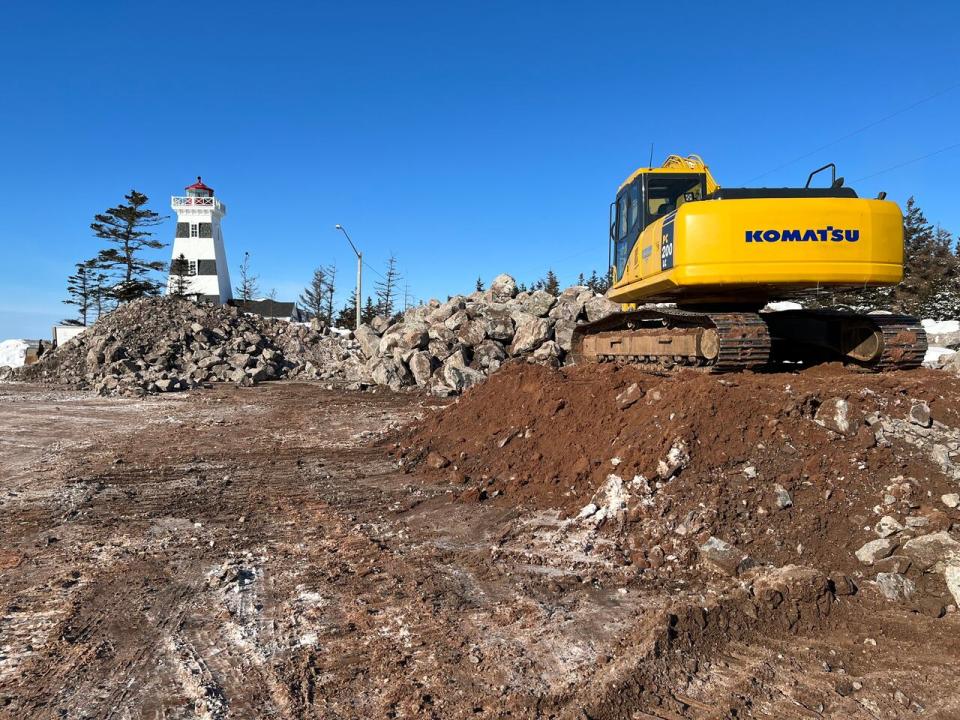Work wraps up on giant reefs to protect threatened shoreline in western P.E.I.

Since late 2021, giant rock reefs have been being built along the shore of Cedar Dunes Provincial Park, part of a multimillion-dollar project aimed at stopping the distinctive red sand beach from being washed away.
On Monday, the P.E.I. government announced that the $3.4 million project — which includes seven 2,000-tonne reefs, 14,000 tonnes of new sand and an artificial barrier — is complete.
And judging by before-and-after photos taken of the shoreline, the results are "fantastic," said Ernie Hudson, the province's transportation minister who is also from western P.E.I.
"It's going to be very interesting over the next few months for me to go out take a look, take a walk along that beach and see just the impact that the additional reefs have had," said Hudson.

This photo provided by the P.E.I. government shows the state of the shoreline before reef work got underway at the end of 2021. (Government of Prince Edward Island)
Cedar Dunes Provincial Park is in West Point. It's home to the Island's tallest lighthouse, which is almost 150 years old and has a reputation for being haunted by its former keepers.
But it's no secret that the shoreline has been disappearing, battered by an ongoing rise in the sea level, storm surges and wave-driven erosion. There were also fears that the iconic black-and-white lighthouse could eventually be swept away.
"It was very concerning," said Hudson. "If work hadn't been done, certainly that historic landmark in Western P.E.I., it was very vulnerable."
Reefs protected shore from Fiona
The final two offshore reefs have just been installed. These enormous piles of large rocks, which weigh 10 times more than a blue whale, slow the currents and offer protection to the shoreline, said Brian Thompson, land and environment director for the government's transportation and infrastructure department
"The sediment in the water column drops out to the sea floor, attaches to the existing sand beach, and builds outwards to the reefs, essentially where the beach used to be located."

'It's a fantastic project, certainly one that is very necessary,' says Transportation Minister Ernie Hudson. (Sheehan Desjardins/CBC News)
The first five offshore reefs, completed in 2022, played an instrumental role in September of that year, protecting the coast and the nearby campground during post-tropical storm Fiona, Thompson said.
"We figure if the reefs weren't there, about half of the Cedar Dunes campground would have been lost," he said.
"We also think that there would have been a significant if not catastrophic loss of the lighthouse and the hotel and the museum."
Not only that, he said you can actually see the "incredibly quick" transformation as the beach builds back behind the reefs and sprawls out almost like fingers.
"It's been real gratifying and satisfying work so far, and to see it work so quickly is really, really positive for us," said Thompson.

Work on the shoreline protection project in West Point started in December 2021. (Wayne Thibodeau/CBC)
Work on the final two started this winter. While it's still too early to say what kind of impact they are having, officials expect to see similar results.
"Looking back my family and I, we used to camp up at West Point at the Cedar Dunes, go over to the lighthouse," Hudson said.
"The investment that's been put in place there, as much as possible, certainly guarantees that future generations will be able to enjoy that as well."
In 2016, the provincial government undertook a similar project in Souris. Thompson said the two breakwaters built there helped protect the causeway from erosion, and are continuing to be effective.
Thompson said the most recent rock reefs aren't likely to be the last ones that P.E.I. builds.
"Whether it's West Point or Souris, they're seeing the benefits," he said.
"Things like campgrounds and you know lighthouses and various coastal infrastructure, it's really difficult to put a dollar value on the benefit of the work that we're doing, but it's significant."


